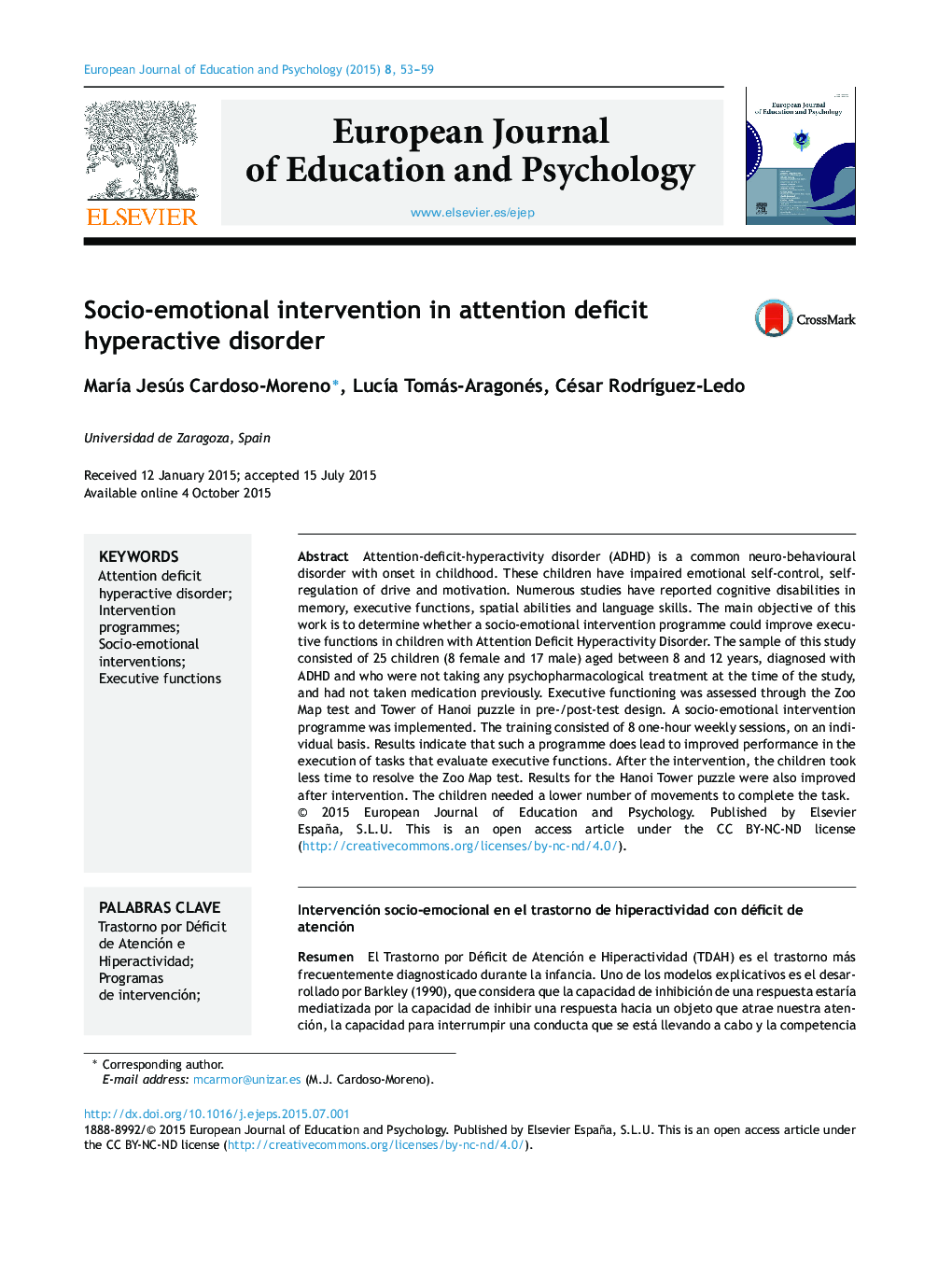| کد مقاله | کد نشریه | سال انتشار | مقاله انگلیسی | نسخه تمام متن |
|---|---|---|---|---|
| 318646 | 1432666 | 2015 | 7 صفحه PDF | دانلود رایگان |
Attention-deficit-hyperactivity disorder (ADHD) is a common neuro-behavioural disorder with onset in childhood. These children have impaired emotional self-control, self-regulation of drive and motivation. Numerous studies have reported cognitive disabilities in memory, executive functions, spatial abilities and language skills. The main objective of this work is to determine whether a socio-emotional intervention programme could improve executive functions in children with Attention Deficit Hyperactivity Disorder. The sample of this study consisted of 25 children (8 female and 17 male) aged between 8 and 12 years, diagnosed with ADHD and who were not taking any psychopharmacological treatment at the time of the study, and had not taken medication previously. Executive functioning was assessed through the Zoo Map test and Tower of Hanoi puzzle in pre-/post-test design. A socio-emotional intervention programme was implemented. The training consisted of 8 one-hour weekly sessions, on an individual basis. Results indicate that such a programme does lead to improved performance in the execution of tasks that evaluate executive functions. After the intervention, the children took less time to resolve the Zoo Map test. Results for the Hanoi Tower puzzle were also improved after intervention. The children needed a lower number of movements to complete the task.
ResumenEl Trastorno por Déficit de Atención e Hiperactividad (TDAH) es el trastorno más frecuentemente diagnosticado durante la infancia. Uno de los modelos explicativos es el desarrollado por Barkley (1990), que considera que la capacidad de inhibición de una respuesta estaría mediatizada por la capacidad de inhibir una respuesta hacia un objeto que atrae nuestra atención, la capacidad para interrumpir una conducta que se está llevando a cabo y la competencia para cambiar el foco de nuestra atención. De esta forma, una baja capacidad de inhibición repercutiría negativamente en las capacidades cognitivas. Desde este modelo, se considera que dicha incapacidad de inhibición está producida por una alteración en la Función Ejecutiva. La muestra de nuestro estudio está formada un grupo de 25 niños con edades comprendidas entre 8 y 12 años diagnosticados de déficit de atención que no están tomando medicación en la actualidad ni la han tomado anteriormente. Se realizó un programa de intervención socio-emocional de una duración de 8 semanas y una frecuencia semanal de una hora. Durante estas sesiones se trabajó el autocontrol, la tolerancia a la frustración y la resiliencia. Los resultados muestran una mejora en la Función Ejecutiva que se traducían en una mejor inhibición conductual.
Journal: European Journal of Education and Psychology - Volume 8, Issue 2, December 2015, Pages 53–59
